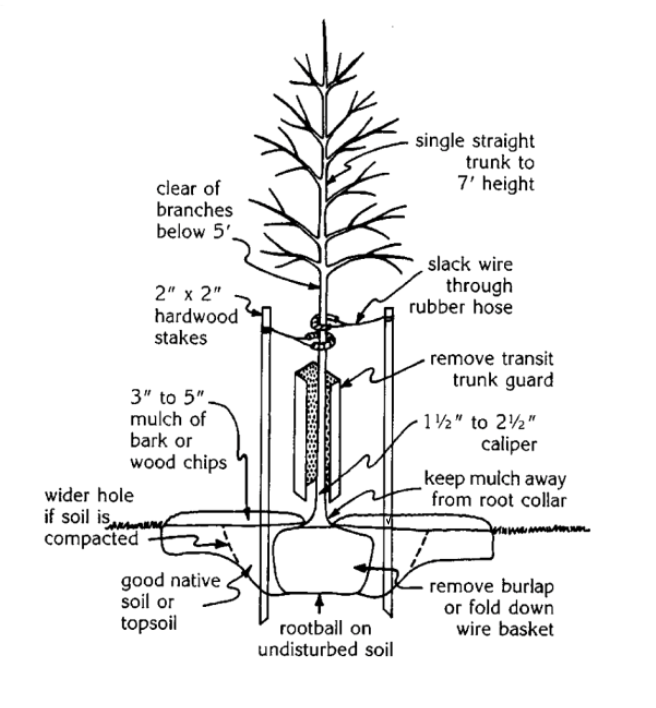When trees are first planted, there is an establishment period lasting at least two years during which intensive maintenance is required. Studies show that transplanted trees lose as much as 95% of their root system during digging. Subsequently, most of the plants energy is initially channeled into root regeneration.
 During the establishment period, shoot growth and leaf size is reduced and wilting and leaf browning may occur. These symptoms are often referred to as “transplant shock”. If a newly planted tree cannot rapidly regenerate roots, the tree generally fails to establish and dies.
During the establishment period, shoot growth and leaf size is reduced and wilting and leaf browning may occur. These symptoms are often referred to as “transplant shock”. If a newly planted tree cannot rapidly regenerate roots, the tree generally fails to establish and dies.
Compacted soil, which commonly occurs on new developments, has low oxygen levels, poor moisture retention characteristics and imposes a physical resistance to root growth. These characteristics severely impede root growth which prevents establishment.
Plants also frequently die because synthetic burlap, wire baskets, and nylon twine and strapping are left on the root ball. These materials will restrict root development and can eventually girdle the stem or major roots years after planting.
Organic mulches are highly effective for improving the soil environment for root growth. Mulches moderate soil temperatures, conserve moisture, provide organic matter and buffer the soil against compaction. Two-to-four inches of wood chips, bark nuggets or similar organic matter should be placed on the root ball and surrounding area. Do not allow mulch to accumulate against bark tissues.
